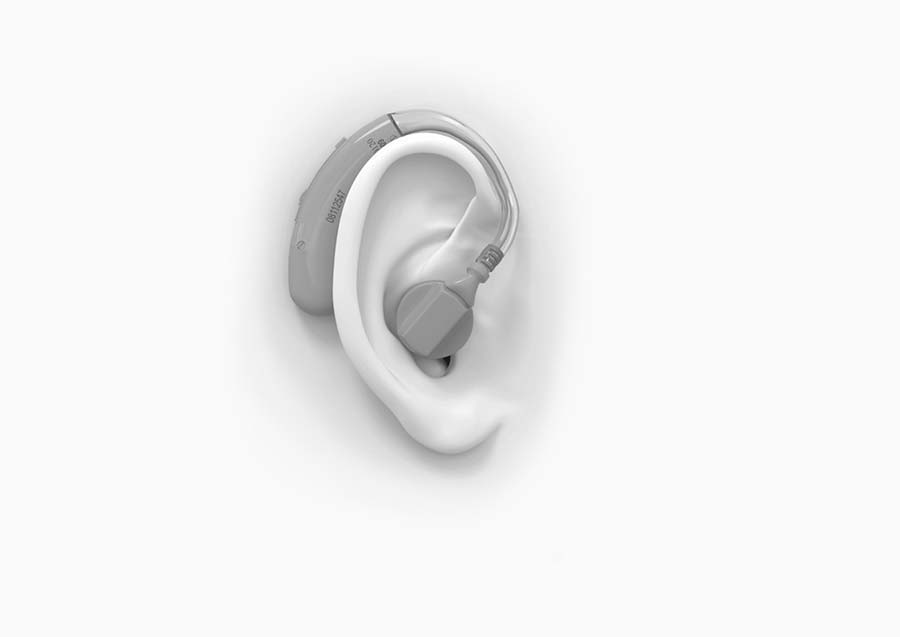The new baby boomer accessory
Hearing aids can be an adjustment for a generation that doesn’t want to get old.
Writer: Mary Ann DeSantis
I must have listened to Carlos Santana and the Moody Blues too much and too loud in the 1970s, because I found myself hard-of-hearing before I reached age 60. At first, I was in denial that I was the one with the problem. I blamed poor acoustics in meeting rooms, and I accused my husband and others of mumbling.
A hearing test during a routine physical showed that I had profound hearing loss in my right ear. Still, I didn’t book an appointment with a hearing specialist for several years.
Baby boomers are notorious for not wanting to get old—or at least not showing their ages. I had the same excuses many others of my generation professed:
My hearing really wasn’t that bad. People just needed to speak louder.
I was too young to wear hearing aids.
I couldn’t afford hearing aids.
As time progressed, I found myself withdrawing from social activities because I couldn’t follow the conversations. I stopped watching television because I missed so much of the dialogue, even with the volume turned full blast. Worst of all, I couldn’t hear my iPhone ringing if it wasn’t in the same room with me.
It was only after interviewing someone for a work-related project and asking him to repeat his comments several times that I accepted the fact it was time to get help. I could tell my interviewee was losing confidence in me. When one’s livelihood is threatened, the price of getting the problem fixed doesn’t seem so bad.
When I finally sat inside the “sound booth” for a comprehensive test at Mid-Florida Hearing, both ears were shot. My left ear was just slightly better than my right, which could hear sounds at only about 95 decibels. In other words, I could hear motorcycles and lawnmowers just fine, but forget about birds singing or someone whispering.
Sadly, I’m not alone. About 20 percent of Americans—nearly 48 million—have some degree of hearing loss, according to Johns Hopkins Medicine, based in Baltimore. By age 65, one of three people is affected. Hearing loss is the third-most common physical condition after arthritis and heart disease, making it a major public health issue.
“The longer it takes to address hearing problems, the more challenging it becomes to get acclimated to hearing aids,” says Mark Eller, the board-certified hearing instrument specialist who fitted me. “The transition period becomes harder.”
Indeed, it does. After I bought an open-fit, receiver-in-canal (RIC) hearing aid, I was in Mark’s office at least twice a week for the first two months. Everything sounded incredibly loud. When you are a writer, you like things to be quiet, but every little sound was getting under my skin.
Filing my fingernails sounded like a buzz saw, and squeaky door hinges felt like high-pitch sirens going off in my head. The cat’s meow for food suddenly became a tiger’s roar.
Trips for “adjustments” to my hearing aids could be frustrating at times, because I could not explain exactly what I was experiencing. Mark, who has the patience of a saint, even crafted a different kind of instrument that fit directly into my ears. Those lasted two days. I couldn’t stand the stuffed-cotton-in-my-ear feeling. It was back to the RIC aids, which he described as a “high fidelity stereo system with a wire running from the stereo to the receiver.”
I was almost ready to give up the expensive gizmos when Mark explained that hearing aids do not correct hearing like eyeglasses correct vision.
“Don’t expect 20/20 hearing,” he says. “You will never have the same level of hearing you did when your hearing was perfect. Hearing aids will help you in most situations, but the adjustments take time.”
When I realized I was indeed expecting 20/20 hearing, I finally was able to accept the small annoyances. Now, six months later, the transition period is behind me, and I’m glad I made the decision to fix the problem.
And the most fun is showing other baby boomers how I can control the volume and make adjustments to my hearing aids on my iPhone with a special app. I’ve gone from feeling old and deaf to having a hip new accessory that allows me to hear the birds singing and people whispering softly, “Isn’t she too young for hearing aids?”


This is a terrific article and well received.